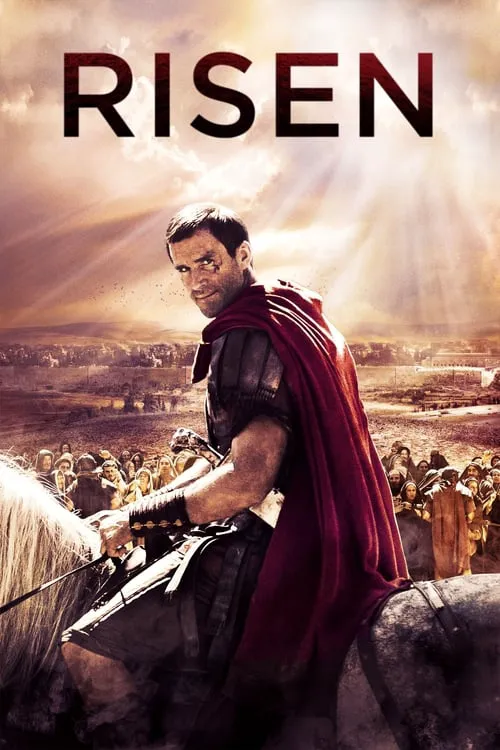Risen

Plot
Risen, directed by Kevin Reynolds, is a biblical drama film released in 2016. The movie delves into the story of Clavius, a Roman military tribune, played by Joseph Fiennes, and his right-hand man, Lucius, played by Tom Felton. Their mission is set in motion by the Roman Prefect Pontius Pilate, who has tasked them with putting an end to the emerging rumors of a miraculous resurrection. After crucifying Jesus, the trio of Pilate, Clavius, and Lucius believe that Jesus' fate has been secured. However, their expectations are turned upside down when they begin to hear whispers and tales of Jesus being alive. This news sends a ripple effect throughout the city of Jerusalem, as the masses begin to believe in the prophecy of a risen Messiah. As the rumors continue to spread, the threat of chaos and an uprising in Jerusalem escalates, prompting the need for Clavius and Lucius to solve the mystery of what really happened to Jesus. Clavius' character offers an interesting dynamic to the story of Jesus' resurrection. As a pagan Roman soldier, he is more concerned with maintaining order and suppressing dissent than with the spiritual implications of Jesus' actions. This approach humanizes Clavius, making him a more relatable protagonist. He is portrayed as a man deeply committed to his duties and obligations, with a keen sense of loyalty to his commanding officers and the Roman Empire. Throughout the film, Clavius' skepticism and initial dismissal of the rumors surrounding Jesus' resurrection are put to the test, forcing him to confront the supernatural and question his own faith. One of the film's main strengths is its thoughtful and thorough approach to historical detail. The scenery and costumes effectively transport the viewer to ancient Jerusalem, immersing them in the culture and atmosphere of the time. Director Kevin Reynolds does an excellent job in recreating the city and its surroundings, capturing the grandeur of ancient Jerusalem while also emphasizing its cramped and chaotic streets. As Clavius delves deeper into the mystery of Jesus' disappearance from the cross, he begins to unravel the truth, which, at first, seems to undermine his own faith in the authority of the Roman Empire. He encounters a wide range of characters who possess knowledge about Jesus' fate, including Mary Magdalene, played by Maria Doyle Kennedy, and a group of young followers who claim to have seen Jesus alive. Clavius' increasing fascination with this phenomenon slowly transforms him from a detached and pragmatic Roman soldier to a man grappling with the nature of his own existence. Throughout the film, the supporting characters add depth and nuance to the story, while the cinematography effectively conveys the sense of tension and foreboding. The music also plays a pivotal role in emphasizing the emotional stakes and heightening the sense of drama. The film's central theme revolves around the concept of 'seeing' and 'believing.' Clavius, initially dismissive of the rumors surrounding Jesus, is forced to grapple with the overwhelming evidence that suggests the impossible: Jesus was indeed crucified and rose from the dead. However, this newfound understanding also raises important questions about the nature of faith and reality. If Jesus has indeed risen from the dead, what does this mean for Clavius, a pagan soldier, and the world at large? How can he reconcile his own experiences with the emerging accounts of a miraculously resurrected Christ? Through the protagonist's journey, the story highlights the complexities and nuances of faith, emphasizing the idea that seeing is not the same as believing. Clavius witnesses numerous supernatural occurrences, yet it takes a pivotal encounter with Jesus himself to change his perspective and ignite a newfound faith within him. The film's message ultimately revolves around the transformative power of faith, highlighting the idea that sometimes the most profound truths lie beyond the realm of sight and rational understanding.
Reviews
Recommendations




